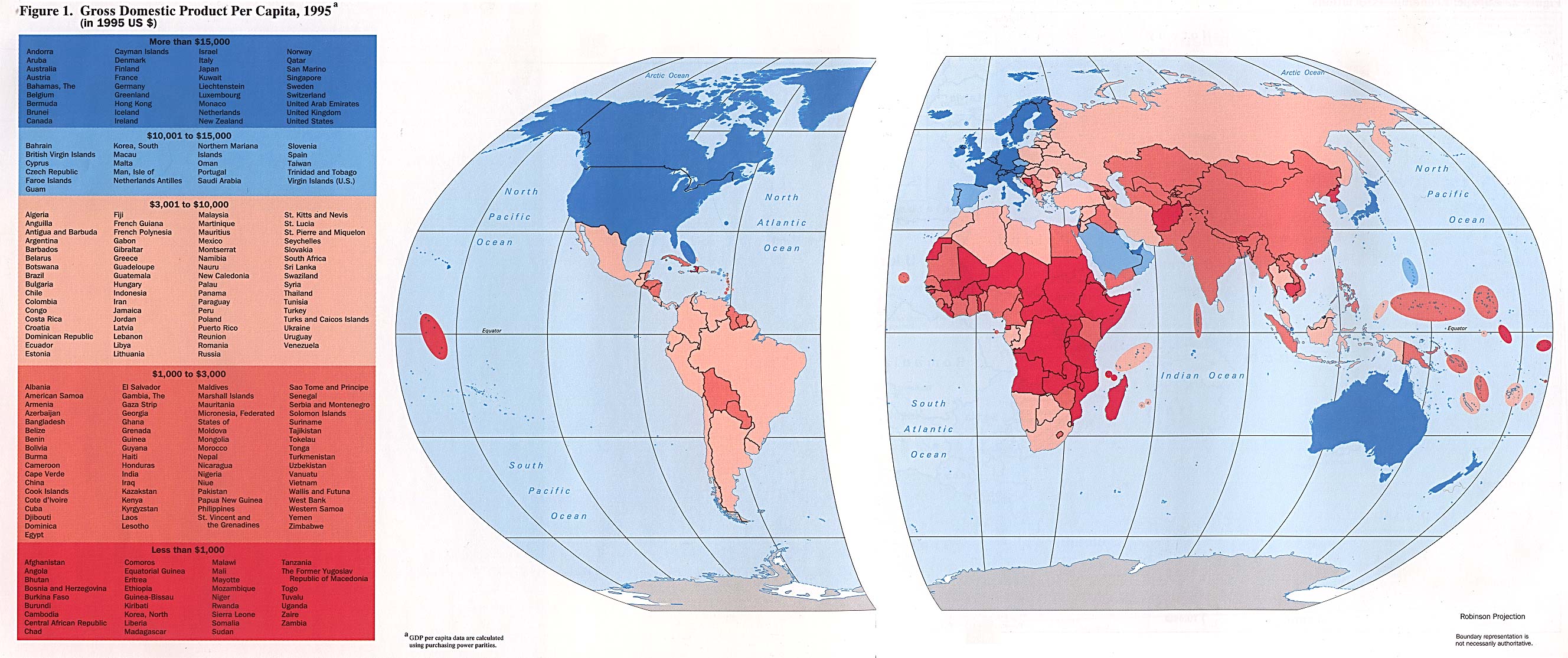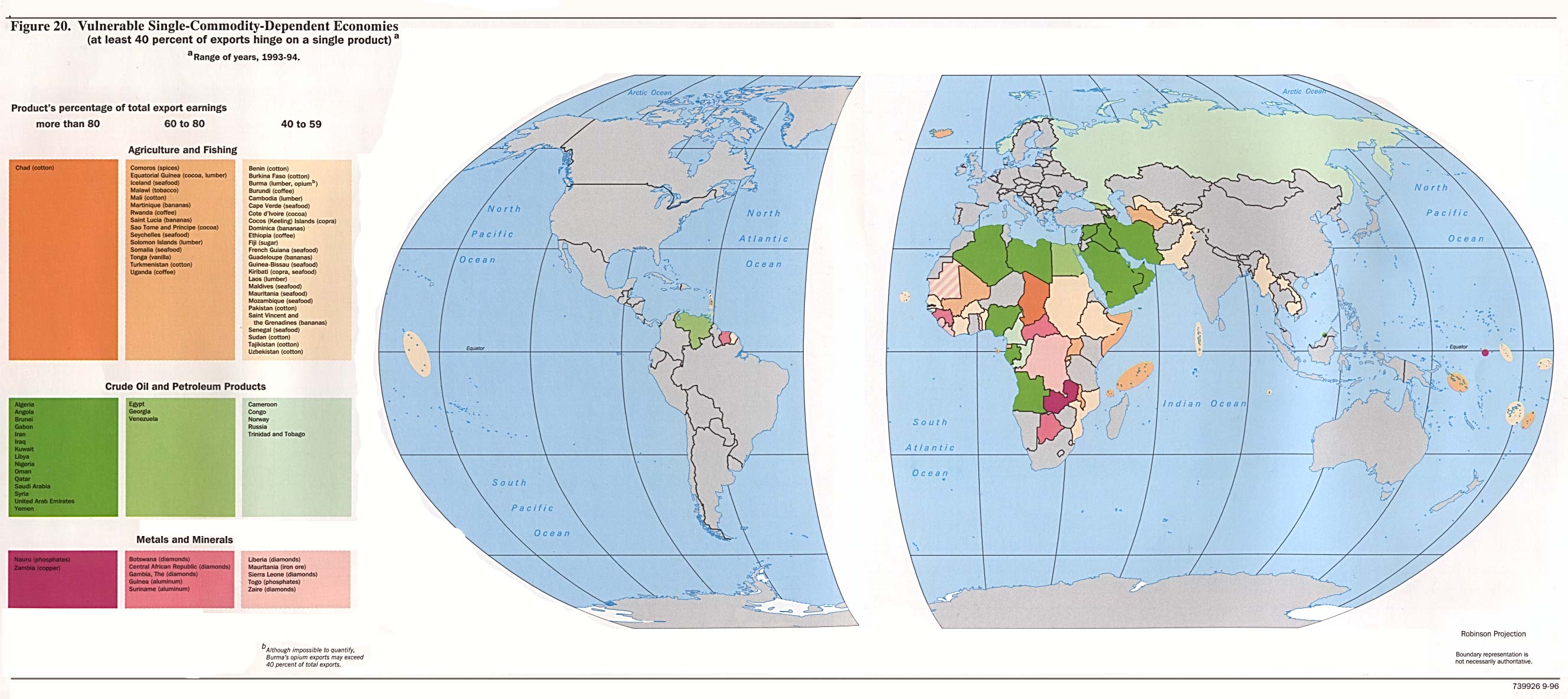Poverty, Inequality, Injustice

In honor of today's Columbia University symposium on world poverty, I would like to post a few statistically based world maps as visual food for thought. What is the underlying cause of poverty, economic inequality, and human deprivation?
According to the World Council of Churches, poverty is manufactured by capitalism. This is an oft-repeated cliche, dating back to paleo-Marxists of two centuries ago. Should we consider that trite assertion as the end of the matter?
 Jared Diamond's book, Guns Germs and Steel, put forward several fascinating explanations for the relative wealth and poverty of the world. The book is quite readable, filled with useful historical details. Certainly if we were still living in the 19th or 20th century, one might consider a few of Diamond's arguments quite strong.
Jared Diamond's book, Guns Germs and Steel, put forward several fascinating explanations for the relative wealth and poverty of the world. The book is quite readable, filled with useful historical details. Certainly if we were still living in the 19th or 20th century, one might consider a few of Diamond's arguments quite strong. David Landes, in The Wealth and Poverty of Nations, takes another approach. Landes looks at wealth as the result of being able to make the leap to the industrial revolution. He attributes this ability to various cultural features of nations. Many historical and cultural arguments are made to support that attribution.
David Landes, in The Wealth and Poverty of Nations, takes another approach. Landes looks at wealth as the result of being able to make the leap to the industrial revolution. He attributes this ability to various cultural features of nations. Many historical and cultural arguments are made to support that attribution. Jane Jacobs, in her excellent "Cities and the Wealth of Nations", describes the many benefits to a nation of aggregating many people together in cities. She is an excellent proponent of the economic and cultural advantages of cities.
Jane Jacobs, in her excellent "Cities and the Wealth of Nations", describes the many benefits to a nation of aggregating many people together in cities. She is an excellent proponent of the economic and cultural advantages of cities.
Lynn and Vanhanen's "IQ and the Wealth of Nations" looks at the average IQ found in various nations around the world, and considers how the mean IQ of a nation might influence its ability to "make the leap" to an industrialised economy, or an advanced information economy.

Inequality and poverty are very real, and have a considerable effect on the amount of misery in the world. The above map details the phenomenon of "displaced persons", or refugees.
Previous posts on this blog relating to the current post can be found here, here, here, and here.
I do not expect a lot of results from all the symposia devoted to world poverty. They are attended by plump, tenured individuals from academia, NGOs, governments, United Nations sub-organisations, think tanks, economic institutions, foundations, and occasional rock stars and film celebrities. Their own well-being is assured many times over, so their interest in the actual poverty of others is, well, never mind. They will not affect poverty to any significant degree, but they make themselves feel better about themselves. Lyndon Johnson declared war on poverty in the US. That was in the 1960s.

To affect poverty, one must not only understand the roots of poverty, and have the ability to influence those roots---one must also have the will to swim against the tide, against popular misconceptions, against the fashions and fads of "anti-poverty" movements and facades. The above map of the world by religion might be juxtaposed with the above world maps showing per capita GDP and other statistical parameters of the various nations of the world. Religion is simply a cultural parameter that may influence the overall equation of poverty in a region.
It is one thing for a nation to find itself impoverished at some point in time. If the nation is like Germany, Japan, or Korea, it will be able to rescue itself with some outside help. It requires quite a different approach when a nation, or entire region, is perpetually impoverished and showing no sign of being anything but impoverished, regardless of the amount of aid given to it. That is what the donor nations of the world are facing--but refuse to face. That type of poverty will never be solved unless the root causes are comprehended, acknowledged, and remedied.
Labels: maps, wealth of nations

0 Comments:
Post a Comment
“During times of universal deceit, telling the truth becomes a revolutionary act” _George Orwell
<< Home